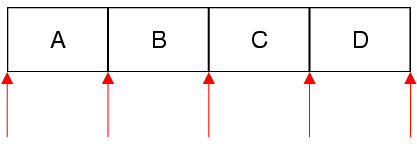 |
CopperSpice API
2.1.0
|
The QMultiMapIterator class provides a Java style const iterator for QMultiMap. More...
Public Methods | |
| QMultiMapIterator (const QMultiMap< Key, Val, C > &map) | |
| ~QMultiMapIterator () = default | |
| bool | findNext (const Val &value) |
| bool | findPrevious (const Val &value) |
| bool | hasNext () const |
| bool | hasPrevious () const |
| const Key & | key () const |
| Item | next () |
| QMultiMapIterator & | operator= (const QMultiMap< Key, Val, C > &map) |
| Item | peekNext () const |
| Item | peekPrevious () const |
| Item | previous () |
| void | toBack () |
| void | toFront () |
| const Val & | value () const |
Detailed Description
template<class Key, class Val, class C = qMapCompare<Key>>
class QMultiMapIterator< Key, Val, C >
The QMultiMapIterator class provides a Java style const iterator for QMultiMap. QMultiMap has both Java style iterators and STL style iterators.
QMutableMultiMapIterator allows you to iterate over a QMultiMap and modify the map. If you do not want to modify the map use QMultiMapIterator instead.
After construction the iterator is located at the very beginning of the map, before the first item. The following code shows how to iterate over all the elements sequentially.
The next() method returns the next item in the map and advances the iterator. The key() and value() methods return the key and value of the last item that was jumped over.
Unlike STL style iterators, Java style iterators point between items rather than directly at items. The first call to next() advances the iterator to the position between the first and second item, and returns the first item; the second call to next() advances the iterator to the position between the second and third item, and so on.

Here is how to iterate over the elements in reverse order:
If you want to find all occurrences of a particular value, use findNext() or findPrevious().
- See also
- QMutableMultiMapIterator
Constructor & Destructor Documentation
|
inline |
Constructs an iterator for traversing map. The iterator is set to the beginning of the map before the first item.
- See also
- operator=()
|
default |
Destroys the iterator.
- See also
- operator=()
Method Documentation
|
inline |
Searches for value starting from the current iterator position and moving forward. Returns true if a (key, value) pair with the specified value is found, otherwise it returns false. If value is found the iterator is positioned just after the matching item, otherwise the iterator is positioned at the end of the container.
- See also
- findPrevious()
|
inline |
Searches for value starting from the current iterator position and moving backward. Returns true if a (key, value) pair with the specified value is found, otherwise it returns false. If value was found the iterator is positioned just before the matching item. Otherwise the iterator is positioned at the beginning of the container.
- See also
- findNext()
|
inline |
Returns true if there is at least one item after the iterator, otherwise returns false.
- See also
- hasPrevious(), next()
|
inline |
Returns true if there is at least one item before the iterator, otherwise returns false.
- See also
- hasNext(), previous()
|
inline |
Returns a reference for the key of the last item that was jumped over using one of the traversal methods next(), previous(), findNext(), findPrevious(). After a call to next() or findNext(), key() is equivalent to peekPrevious().key(). After a call to previous() or findPrevious(), key() is equivalent to peekNext().key().
- See also
- value()
|
inline |
Returns the next item and advances the iterator by one position. Call key() on the return value to obtain the key or call value() to obtain the value.
Calling this method on an iterator located at the end of the container causes undefined behavior.
- See also
- hasNext(), peekNext(), previous()
|
inline |
|
inline |
Returns the next item without moving the iterator. Call key() on the return value to obtain the key or call value() to obtain the value.
Calling this method on an iterator located at the end of the container causes undefined behavior.
- See also
- hasNext(), next(), peekPrevious()
|
inline |
Returns the previous item without moving the iterator. Call key() on the return value to obtain the key or call value() to obtain the value.
Calling this method on an iterator located at the beginning of the container causes undefined behavior.
- See also
- hasPrevious(), peekNext(), previous()
|
inline |
Returns the next item and advances the iterator by one position. Call key() on the return value to obtain the key or call value() to obtain the value.
Calling this method on an iterator located at the beginning of the container causes undefined behavior.
- See also
- hasPrevious(), peekPrevious(), next()
|
inline |
Moves the iterator to the end of the container after the last item.
- See also
- toFront(), previous()
|
inline |
|
inline |
Returns a reference for the value of the last item that was jumped over using one of the traversal methods next(), previous(), findNext(), findPrevious(). After a call to next() or findNext(), value() is equivalent to peekPrevious().value(). After a call to previous() or findPrevious(), value() is equivalent to peekNext().value().
- See also
- key()


